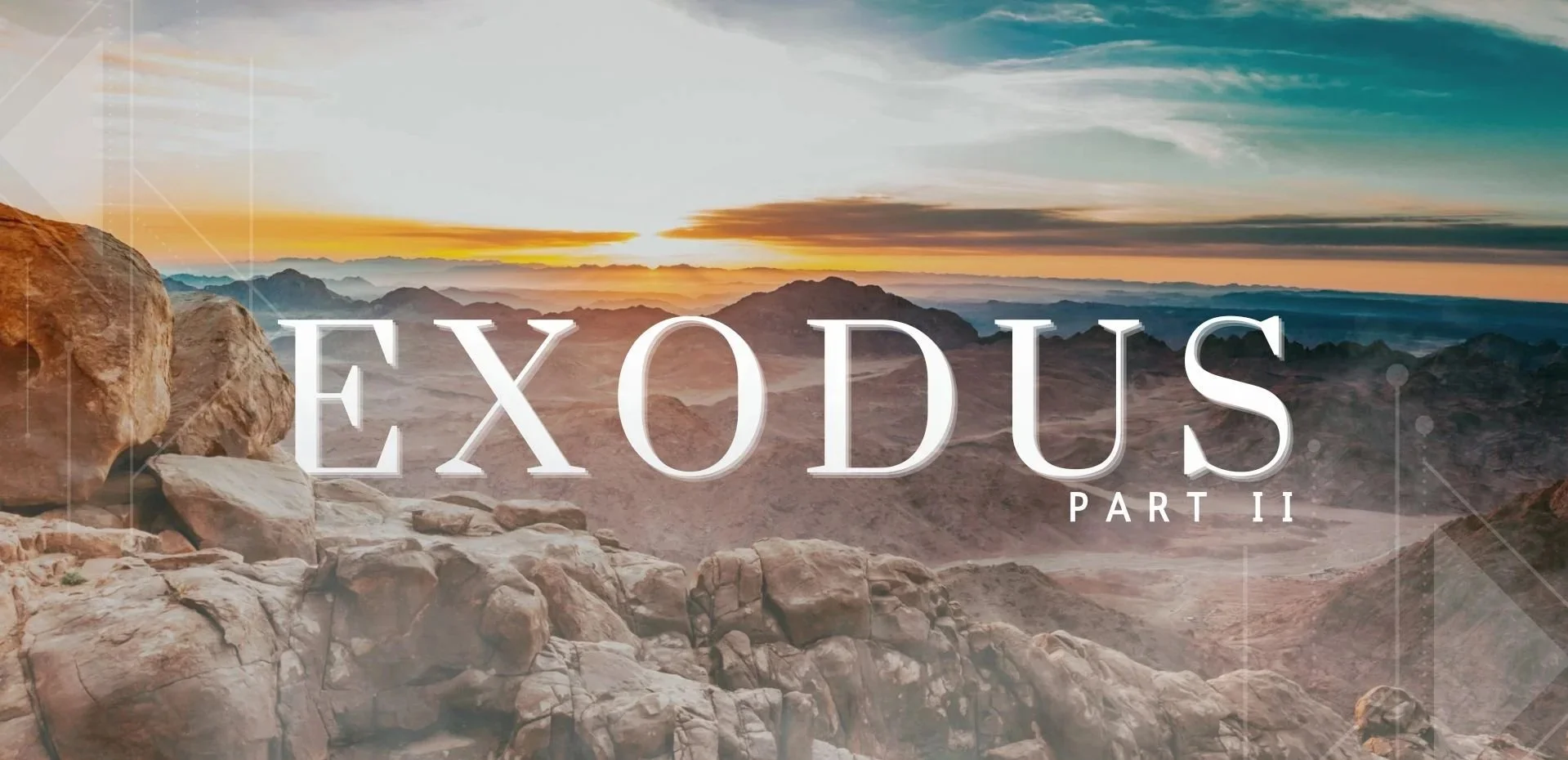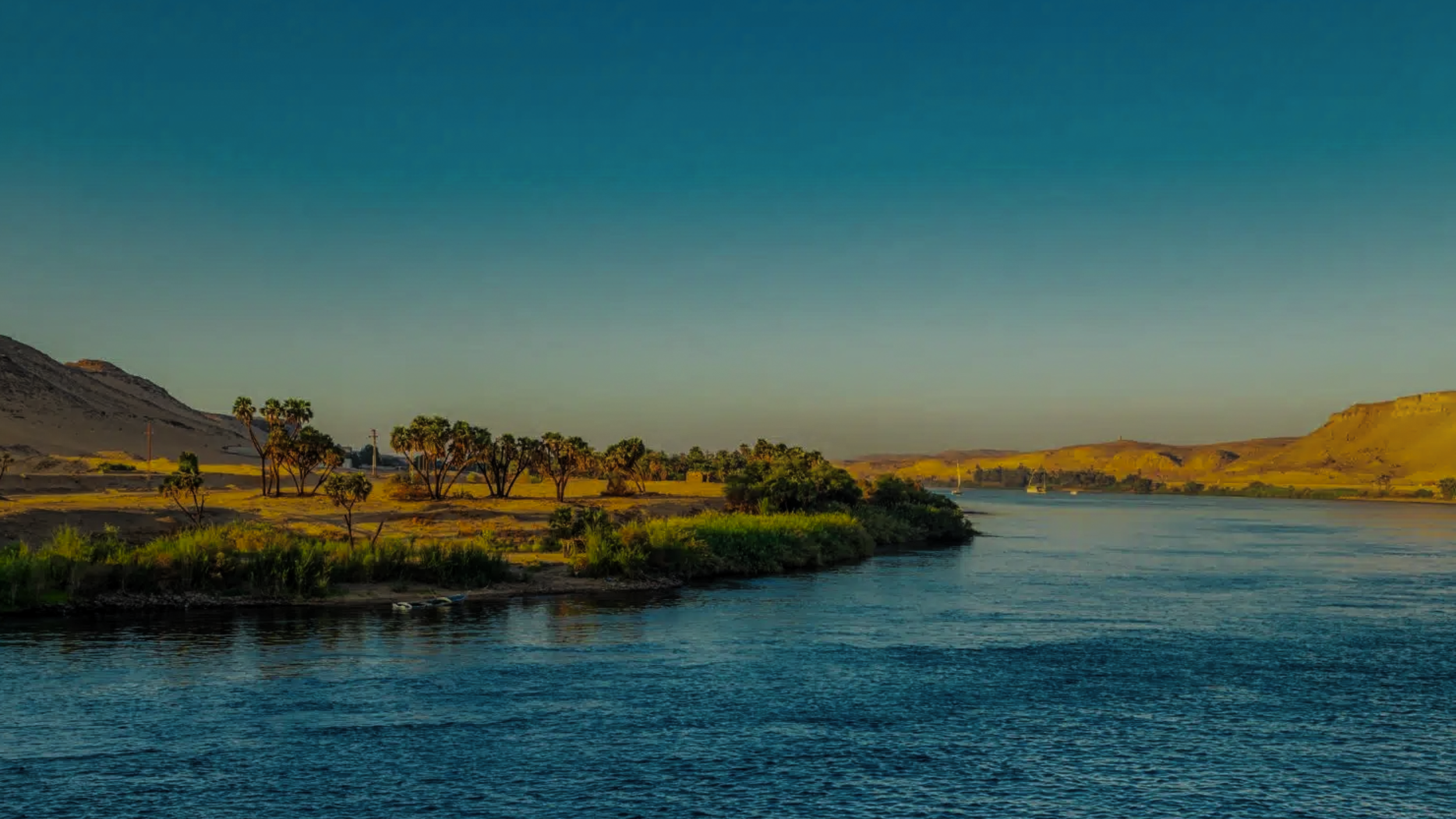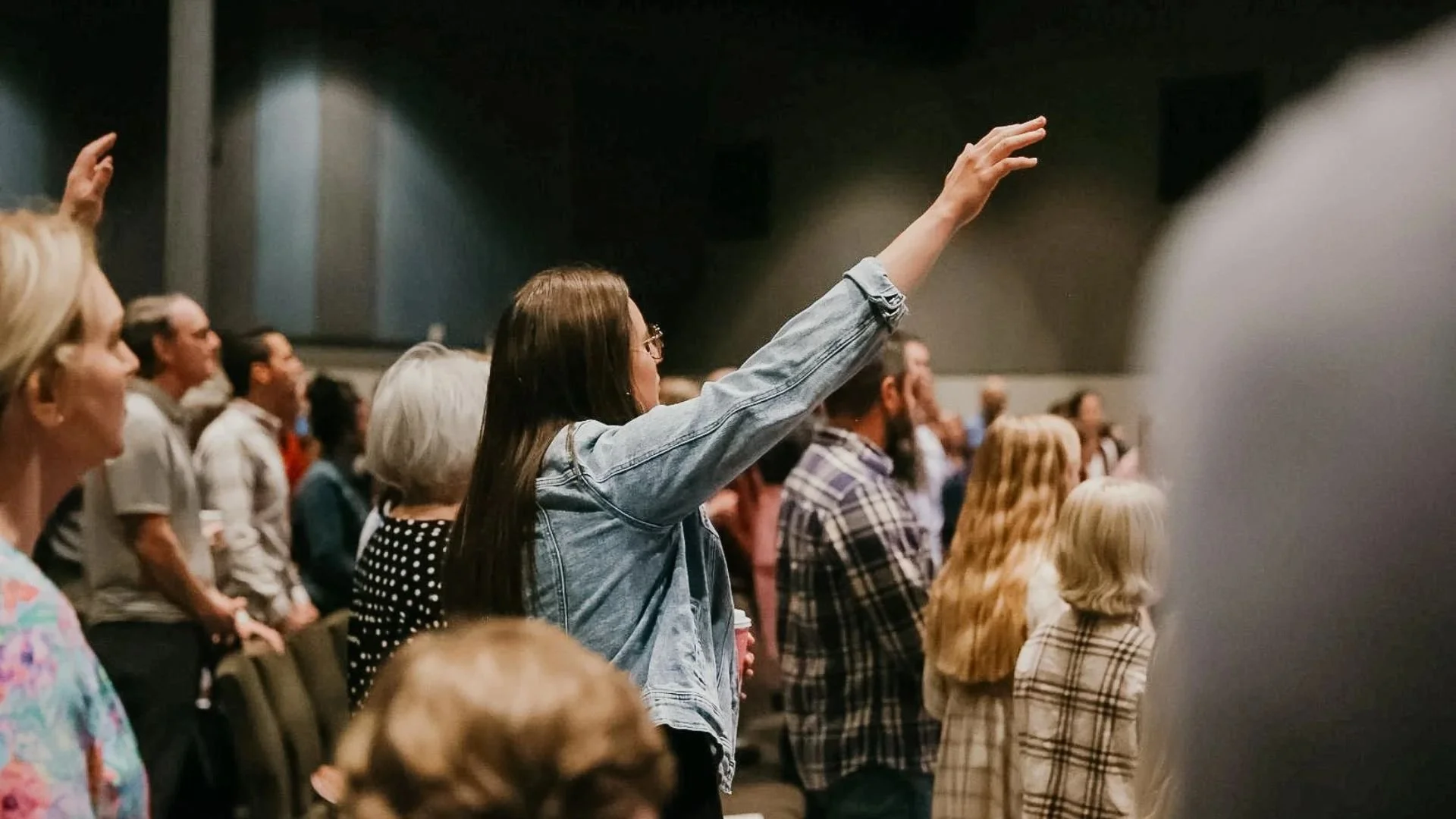
Churchwide Study Plan
You can pick up a reading plan postcard at Crosspoint or follow along below as you prepare for worship each week.
-
January 11 | Exodus 15:22-27
January 18 | Exodus 16:1-36
January 25 | Exodus 17:1-14
February 1 | Exodus 18:1-27
February 8 | Exodus 19:1-25
February 15 | Exodus 20:1-21
February 22 | Exodus 20:22-23:19
March 1 | Exodus 23:20-24:18
March 8 | Exodus 25:1-40
March 15 | Exodus 26:1-27:21
March 22 | Exodus 28:1-30:38
March 29 | Exodus 31:1-11
April 5 | Exodus 31:12-18
April 12 | Exodus 32:1-35April 19 | Exodus 33:1-34:55
April 26 | Exodus 35:1-40:38
For better or worse, when I think of the Book of Exodus, my mind quickly returns to the 1998 animated film “The Prince of Egypt.” For an older generation, maybe it’s the 1956 “The Ten Commandments” starring Charlton Heston or even the many-times-reprised African American spiritual “Go Down Moses” (🎵“Let my people goooo…!”).
The Exodus narrative is such a gripping story. There’s something about it—an underdog story, a tale of epic showdowns, and a reminder that bad guys won’t win in the end.
In one sense, we’re drawn to the Exodus story because we’ve been wired for redemption.
Since the tragedy of Genesis 3, humanity has desperately searched for salvation. For some, the cares of the world become their gods—their satisfiers. Money, power, comfort, sex, achievement, popularity … the list goes on. The Bible clarifies the problem for us. We’re all born in bondage to sin. Every life begins shackled to one who wishes to see us spiral into self-destruction and despair. This world will never satisfy.
But God sees and He knows (Exod. 2:25).
Eagles’ Wings
The Book of Exodus highlights how Yahweh is a God of redemption. No bondage and no slavemaster can overpower the Supreme of the universe.
In Exodus, we see that God redeems His people to worship Him. On the one hand, the Israelites were redeemed from systemic oppression. An evil tyrant had subjugated an entire nation and was bent on expending their lives for his purposes. God saw the suffering of Israel and intervened on a massive scale.
Rescue came to define the Jews—the Old Testament’s mountain of references back to Exodus demonstrates as much. Yet, Exodus is more than liberation history.
We mustn’t forget that Egypt was a land of false gods, and the Hebrews were not immune to their sway. Even after being delivered from the grips of Pharaoh, the Israelites would groan to return to Egypt’s comforts and would quickly replicate their prior host’s idols with something of their own (Exod. 32). When God redeems Israel, He not only rescues them from physical oppression but also spiritual oppression.
Of course, Exodus is not merely about redemption. The narrative highlights a significant moment of deliverance, but the book aims at an even bigger message.
Exodus is about God’s relationship with His people. When He brings deliverance, He is reviving His plan from the beginning.
Israel is rescued so they can be restored unto their purpose as God’s chosen servants. We see this most clearly as the book traces two other primary themes: presence and mission.
Holy Ground
Exodus begins in the dark world of Pharaoh’s kingdom—the one true God has not been welcomed among the Egyptian pantheon. But God was never distant (nor did He ever need an invitation). He was nearby and ready to move.
As the Exodus narrative picks up, we see God meeting with Moses and then with the Hebrew people at key moments: the burning bush, the pillars of cloud and fire, the mountain, and the tabernacle. God rescues His people so that they might dwell again with Him—a return to an Eden-like relationship.
But the curse of sin remains. Until God’s people reach the true and eternal promised land, they’ve got to steward their days to honor Yahweh and look to a mediator. So God gives the Ten Commandments and a host of other laws and practices to help Israel navigate the brokenness of the world and the stain still remaining in their hearts.
The first part of Exodus highlights Israel’s redemption, yet once they’ve passed through the Red Sea, the book begins to focus on their consecration. God is, at the same time, renewing His promises to Abraham, Isaac, and Jacob, but also clarifying His intention to gather worshippers on a global scale.
Treasured Possession
Though a remnant had remained faithful (e.g., Shiphrah and Puah, Exod. 1:15), we meet a people group that had largely forgotten its identity—its job assignment. Abraham’s family had been promised a great blessing and were intended to extend that blessing to the nations (Gen. 12:1-3). Christopher Wright reminds us that in Genesis 12, “‘be a blessing’ entails a purpose and a goal that stretches into the future. In short, it is missional.” (The Mission of God)
We can see a glimpse of God’s missionary heart on display as he welcomed a mixed-multitude to escape through the Red Sea alongside the Israelites (Exod. 12:38). Yet, the mission of God is full-force once we arrive at Mt. Sinai.
In Exodus 19, we encounter a landmark passage. God says to Israel, “‘You yourselves have seen what I did to the Egyptians, and how I bore you on eagles’ wings and brought you to myself. Now therefore, if you will indeed obey my voice and keep my covenant, you shall be my treasured possession among all peoples, for all the earth is mine; and you shall be to me a kingdom of priests and a holy nation.’” (Exod. 19:4–6).
God reminds Israel of the magnitude of their rescue, He builds upon the previous covenant with Abraham in a fresh invitation to be His treasured people, and most interestingly, He calls them to be a “kingdom of priests.” That language of the priest anticipates tabernacle worship and the Levitical system to come, but it does much more.
Israel would have a priest, Aaron. He and his sons would mediate on behalf of the people according to the sacrifices and rituals God would prescribe. But in Exodus 19:6, God calls all Israel to step into a mediation role. As God’s privileged people, they are God’s missionary people. Their job assignment, harkening back to Genesis 12, was to proclaim the name of Yahweh to the nations.
The book of Exodus is about how God keeps His promises and animates our purpose.
Exodus For Today
Exodus is compelling, but not because it captures a cinematic story.
In so many ways, Exodus depicts the Christian life.
It’s compelling because it’s our story.
As we read, we can find ourselves all over its pages.
God has dramatically saved us. In Christ, we have looked to the covering and sacrifice of blood, which has satisfied the wrath we deserve for our sin.
God has come to dwell within us by His Spirit—a down payment on the return to the Garden that awaits.
And He’s now deploying us into every pocket of this world to share the good news of Yahweh—a crucified and risen Savior who reigns eternal. Now, transformed by Christ, we’re a kingdom of priests and a holy nation. Our eternity is secure, and our journey home has purpose.
Over the next year, consider how God might further shape and form you through Exodus. We hope you’ll find the resources on this page helpful for your personal study as we walk through the book together as a church.
Sermon Series Introduction
Will Jackson
Equipping Pastor

Book Recommendations
How to Read Exodus by Tremper Longman
The 10 Commandments by Kevin Deyoung
Exodus for You by Tim Chester
God Rescues by Jared Kennedy
The Mission of God by Justin Schell
Echoes of Exodus by Alastair Roberts
Exodus Old and New by Michael Morales
40 Questions about Christians and Biblical Law by Thomas Schreiner
Four Mountains by Michael Niebauer
Digital Recommendations
Article Recommendations

Exodus as Christian Scripture

Exodus Playlist
Check out this playlist as you read and study Exodus with us this fall.







